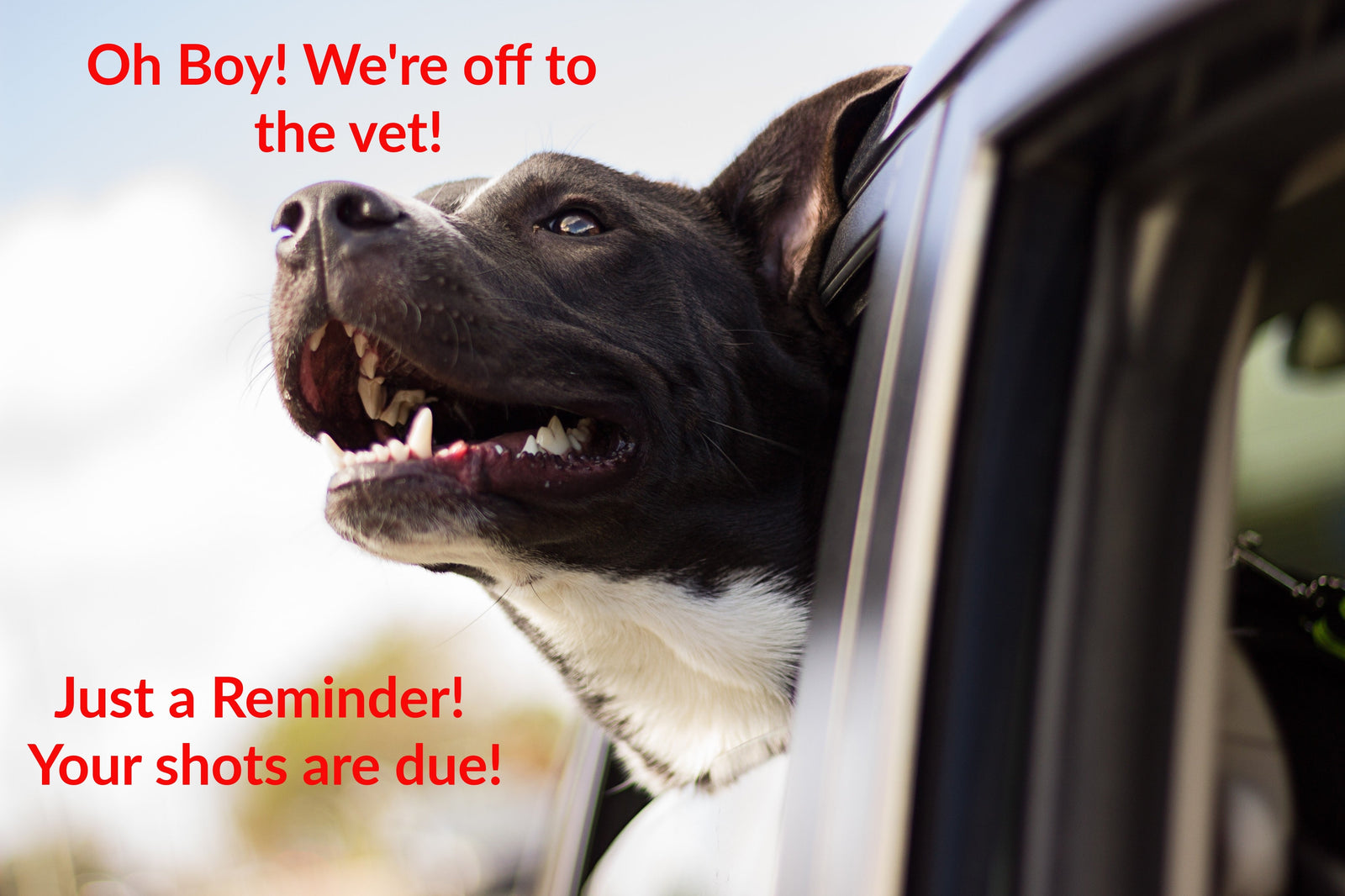How many times have you received a card in the mail informing you that your pet is due for "shots" or "boosters"? I'm a big fan of reminder cards since I can't remember when I'm supposed to schedule dental exams, eye exams, or other routine visits. I get reminders when it's time to renew each pet's microchip information and registration - very helpful! I know ... anyone younger than me most likely uses apps and phone reminders. But I'm old-school and still appreciate a paper card in the mail.
However I do have a problem with these "shot" reminders because more often than not, they are recommending vaccines annually instead of limiting vaccines to when they are really necessary. Vaccines are not as innocuous as many doctors want us to believe. Don't get me wrong - I believe vaccines have saved many lives - but I also believe overuse has caused many problems, including chronic inflammation and allergies, auto-immune diseases, seizures, and nerve damage.
Vaccines work by mimicking particular viral or bacterial particles, stimulating the immune system to make antibodies against the virus or bacteria. In order to decide which vaccines your pet needs, you must consider their lifestyle. There is no "one size fits all" when it comes to vaccination recommendations. A dog living in a high-rise apartment in the city has a very different lifestyle from a hunting dog living on a farm. A senior pet has different health challenges to consider than a young puppy or kitten.
Side effects from vaccination are not that uncommon. They may include:
- pain at the injection site
- fever
- lethargy
- lameness
- vomiting
- diarrhea
- anaphylactic reaction
- hives
- swelling
- tumor formation
- shock
- death
Side effects usually start appearing a couple of hours after the vaccination, but they can also take days, and even years, to appear. The most severe reactions are generally apparent within a few minutes. Most vaccine reactions are never reported to vaccine manufacturers and many are never reported to the veterinarian administering the vaccine. This contributes to the believe that vaccines are harmless.
Once your pet has a reaction after vaccination, your veterinarian will generally recommend giving a dose of antihistamine at the time of vaccination in the future. In my opinion, this is not a good idea. I prefer not to vaccinate that pet in the future, as the risk of a more severe reaction increases each time a vaccine is given.
If the vaccine is mandatory (Rabies for instance), I do recommend pre-treating with an antihistamine and having the vaccine given at a time when you are available to stay at your veterinarian's office for at least one hour after vaccination to watch for allergic reaction. If vaccine exemptions are allowed, that would be my preferred way to avoid giving a vaccine that may cause anaphylaxis (severe allergic reaction leading to shock).
Vaccinations should never be given to a pet that is ill or undergoing an anesthetic procedure. Multiple vaccinations should not be given at the same time. Vaccine injections should be given low on the hind legs, never over the shoulder or loin area. If a tumor develops secondarily to the vaccine, leg amputation might save the pet's life, whereas a tumor over the shoulder or loin area would be very difficult to remove.

While attending a local low-cost vaccination clinic may sound appealing, make sure you understand exactly which vaccines your pet needs. Core vaccines such as distemper, parvovirus, and hepatitis may last 5 to 8 years, or lifetime, and should not be given annually. Lifestyle vaccines such as kennel cough, Lyme, Leptospirosis, and feline leukemia should only be given to animals with high risk of exposure. Just because a bigger package of vaccines for one "low-low price" sounds appealing, the risks of chronic inflammatory diseases and costs associated with treatment are not worth the "one size fits all" approach.
For more information on individual vaccines and protocols, check out my books From Needles to Natural and Raising Naturally Healthy Pets.
Download Dr. Judy's Vaccination Protocol - Free PDF Download
More Vaccine Resources
Disclaimer: This content is for informational purposes only and is not meant to diagnose, treat, or replace consulting a primary veterinarian for individualized care.

